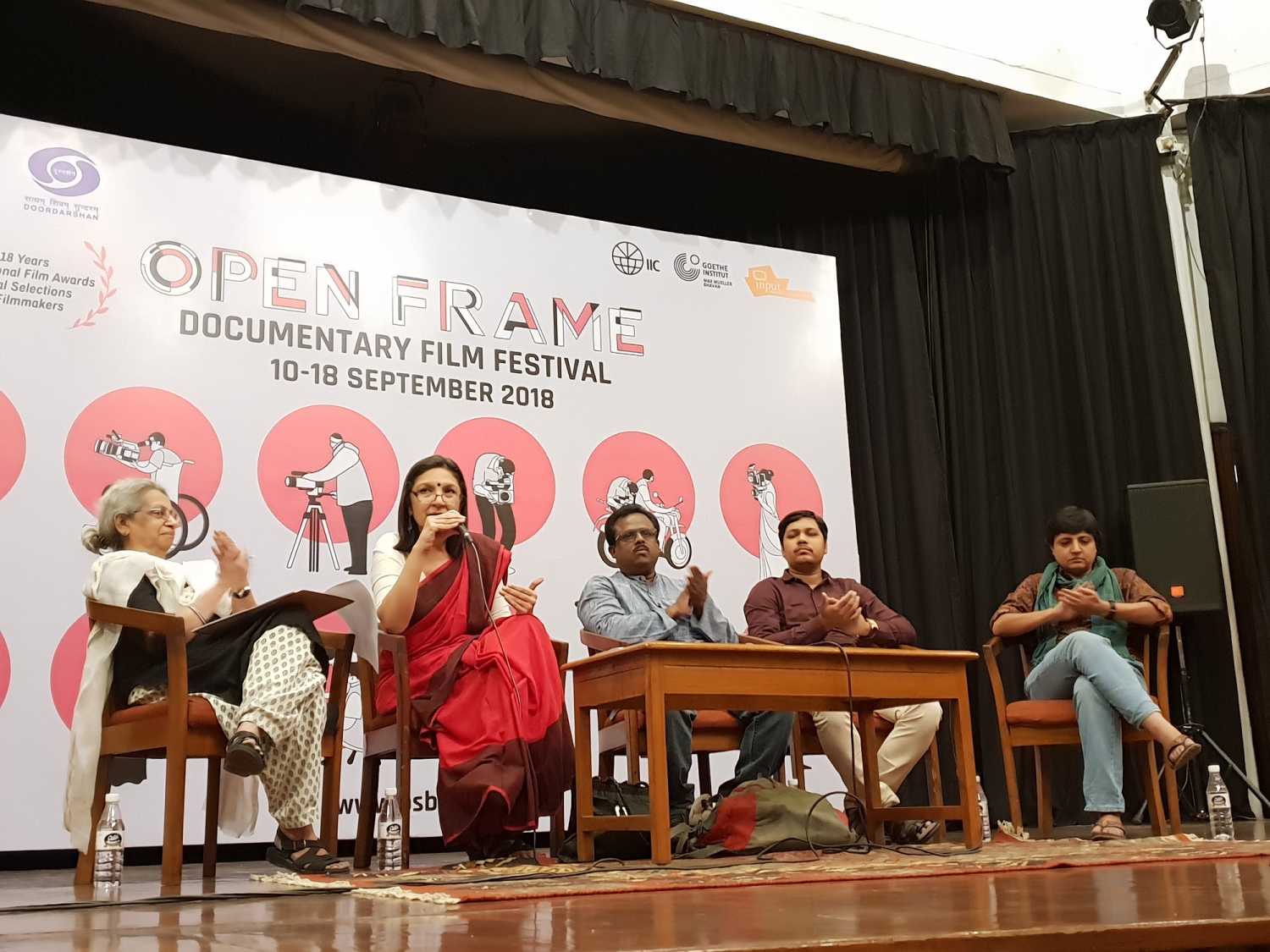At the panel discussion filmmakers Ajay TG, Maheen Mirza, Tarun Kumar Mishra and Uma Chakravarti spoke about the need for society to fight for the rights of the adivasis as they bear witness to the massive destruction of their way of living.
We need to change some hearts and some politics: Farah Naqvi at Open Frame Film Festival
New Delhi - 17 Sep 2018 20:00 IST


Sukhpreet Kahlon
At the PSBT Open Frame Film Festival 2018, a panel discussion, titled ‘Narratives from the Hinterland’, saw filmmakers Ajay TG, Maheen Mirza, Tarun Kumar Mishra and Uma Chakravarti in conversation with activist and writer Farah Naqvi. The films screened in the morning session questioned the idea of development, engaging with the neglect of environmental and human rights, particularly in areas of Chhattisgarh and Odisha.
Naqvi began the session by talking about the films under discussion which upheld a deep activism and possessed the vision to do something, while emphasizing that the voices of the adivasis were completely absent in mainstream politics. Foregrounding this omission, she spoke about the challenges for activism and the silencing of the media in the current political climate, welcoming a platform like the Open Forum Film Festival, which allowed for such conversations and explorations, saying, “We need to change some hearts and we need to change some politics.”
Talking about the concerns raised in the films, feminist historian and filmmaker Uma Chakravarti drew attention to the term ‘Company rule’ in the films, which indicated the power enjoyed by private conglomerates ruling the nation, much like the East India Company that we, as Indians, struggled to overthrow.
Speaking about the collusion between the private enterprises and state apparatus, she drew on the example of civil rights activist Sudha Bhardwaj who was there in one of the films but is currently under house arrest. Jailed on charges of sedition and out on bail, independent filmmaker Ajay TG talked about his desire to explore the idea of development through his film, especially in a scenario where the public sector acts like the private sector. His evocatively titled film, Koi Chand Bhi Nahin (There Is No Moon) bears witness to the gross neglect of environmental and human rights in Chhattisgarh.
Contemplating these ideas, Tarun Kumar Mishra emphasized on the need to think about wildlife and nature while thinking about development. “Where are we headed with this development and what is development after all?” he asked. Mishra also spoke about the plundering of natural resources and the contamination of ground water and rivers at an alarming rate by mining activities, all taking place under the guise of development. His film, The Call Of Kandadhar Hills examines the primitive Paudi Bhuinyas of Khandadhar hills in Odisha whose way of living in balance with nature is being threatened. Drawing attention to the stereotyping of adivasis, he said that media was also only interested in the adivasis as long as they danced and sang for us but not when they protest and fight for their rights.
Maheen Mirza’s film, If She Built A Country (Agar Who Ek Desh Banatee) looks at the protest of rural, adivasi women living in the villages of Raigarh, Chhattisgarh, and the filmmaker recounted how she drew immense strength from these women. Even though their lands have turned to ash due to the by-products of mining, the women rise like phoenixes, to fight for their rights. “These women are bringing in a new brand of activism….We should answer that call and stand beside them. For so long we have loved the romanticism that comes with the adivasis but things have changed. We need to see their struggle and absorb it into our frames,” she said.
The thought provoking and engaging session made the audience think about the voices and spaces for dissent in an increasingly polarized society, where the rights and voices of the advisasis are being quelled by the roar of bull dozers flattening their homes.
The panel discussion was held on 16 September at the India International Centre, New Delhi, as part of the Open Frame Film Festival 2018.
Related topics
Open Frame Film Festival

